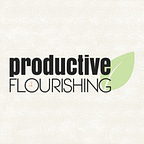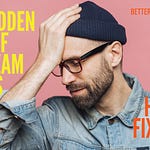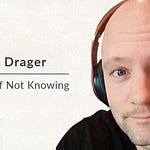Sharon Rowe is the founder of EcoBags, and an award-winning entrepreneur. She joins Charlie today to talk about what she’s learned in steering her almost 30 year career as an entrepreneur. They also discuss what’s different about today’s business landscape, the relationship between your why and your financial metrics, and how important going is for getting your business going.
Key Takeaways:
[2:00] - Sharon started EcoBags in 1989 because she saw a problem and felt that need to take care of it. At the time, she was a new mom and also working as an actress in New York City. She wanted to have an impact, and felt like reducing use of plastic bags would make an impact on the planet and starting her own business would allow her to have a flexible schedule and be in control of what she was promoting.
[3:45] - She had a limited business background, but her training as an actress helped prepare her for the possibility of failure, and gave her resilience to bounce back. All of this background helped to prepare her for what she calls “The Big Idea.”
[5:30] - EcoBags are sturdy, reusable bags that you can use again and again for groceries, gym clothes, etc. The idea is not to create any waste. Back when it started in 1989, it was an innovation in the United States. Many countries in Europe have taxes against plastic bags that have dramatically reduced use.
[8:05] - While she didn’t know how big it would get, Sharon knew it was something that had to happen, and knew that the idea would catch. But for Sharon, it’s not the business of reusable bags, it’s about the business of a cultural shift. Her top priorities were the cultural shift and having time to spend with her family.
[10:50] - For creative people and entrepreneurs, it’s easy to think about the product as a transactional type of thing. But every product is an embedded message or embedded social cue. Think about what you’re promoting and what cultural values you’re instilling.
[11:40] - EcoBags uses materials that are sustainably sourced and responsibly made. Sharon talks about how they are encouraged when other people copy this idea, even when it creates other competition, because overall the impact is a positive one in the right direction for the environment.
[13:30] - Business is a currency for your ideas. For creative people, it’s also your income. You have to protect your ideas and the integrity of your product. Engagement then becomes a big part of conducting business; as entrepreneurs we want to work together to address the issues of the world through our ideas (Sharon’s friend calls this “co-opetition”). If you’re giving, that’s when you’ll get.
[16:00] - Co-opetition and networking is super good business. When you celebrate other people, they are happy to celebrate you too. The more you get out into your community and begin making connections, you’ll find that people are really interesting in their business and in who they are. You never know where these connections are going to lead. Keep showing up, even if it’s uncomfortable.
[20:55] - You have to tell a story, and any kind of story stimulates curiosity. If you stimulate curiosity, you never know what kind of endorsements you might happen upon. If you show up to give, not to get, that’s when you get more in return.
[23:00] - What are the three major differences in starting and being in business now versus 30 years ago when EcoBags started? 1. It’s easier and less expensive to get going now because of the internet and all the tools that are there. 2. It is more challenging now to have your idea heard, and to find the right communities you need to speak to. 3. Today, you need to slow down and take stock of what you need to move forward focusing on your big “Why.” You really need to hook into this “Why” - why are you doing this, why does it matter to you, and how are you going to execute it?
[26:45] - The connection between the “Why” and your business metrics is that our culture requires us to support ourselves. How we choose to do this is a personal choice guided by structures that dictate a lot of the “how.” You get to pick and choose your life if you keep the “why” active by working with your forecast to build the road you want to be on. It’s the intentionality that’s tied to your “why,” how you want to live your “why,” and how that supports your “how.”
[31:30] - Charlie talks about the methodology behind Mr. Money Mustache, and about the importance of prioritizing. Being intentional about the choices you have to make will allow you to make the choices you want to make.
[34:00] - Many creative people feel that financial metrics and your vision and missions are at odds with each other. This isn’t true! You can use your financial metrics to set boundaries and figure out how you can open up your ideas to share with others and still maintain your vision and priorities.
[37:30] - Since starting the business, one of the toughest decisions Sharon’s had to make is hiring a CEO, and eventually firing them. The recession came right after they had a huge growth spurt, not only in profit and revenue, but also in their employee workforce. As the recession started to affect the people they did business with, things started to fall apart a bit and Sharon had to decide to bring someone else on boardm, and that person ended up getting them back on solid ground. In the long run, it didn’t work out because Sharon was having to do more to support him than it was worth financially, and that was another tough decision she had to make to let him go.
[42:25] - There have also been opportunities Sharon knew she should’ve taken, but didn’t. Part of this was understanding the expectations of your workforce (your employees working consistent hours and being compensated accordingly), and how that fits in with the expansion and contraction of business. During the recession, she realized she needed to trim faster and make adjustments to fit into what was going on around their business as well.
[47:15] - Businesses need to be stronger on process now than they used to; you can choose to operate lean in the beginning, or you can wait to run lean until you’re forced to. Running lean by choice from the beginning can prevent having to let people go in times of recession. For EcoBags, they were affected by many of the businesses they serve also facing the effects of the recession.
[49:32] - One of the most unanticipated challenges that Sharon is currently facing is growing the business. They have some of the same customers they’ve had for 30 years, as well as new customers coming in every day. But she is finding that in business today, you have to get someone’s attention, be put into their workflow, and then you have to service them. At this point, it is incumbent on you to keep that relationship going. Finding and maintaining the new relationships is the tough part.
[54:35] - In an effort to dive into your “why” and execute your “how” into something sustainable that supports your life, Sharon’s invitation for listeners is to read her new book (link below) and share it with others. As members of the creative community, work to make this community more visible, because that’s where the ideas come from.
Mentioned in This Episode:












